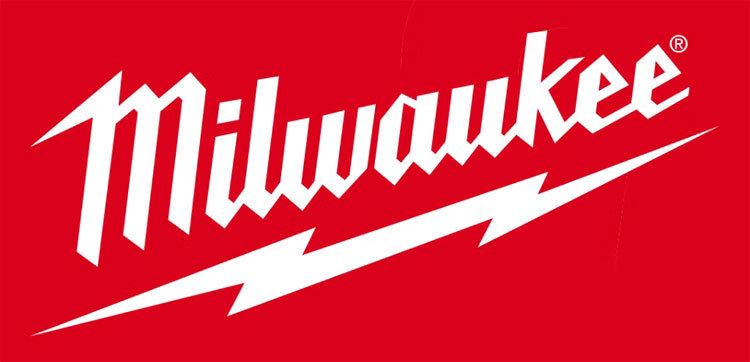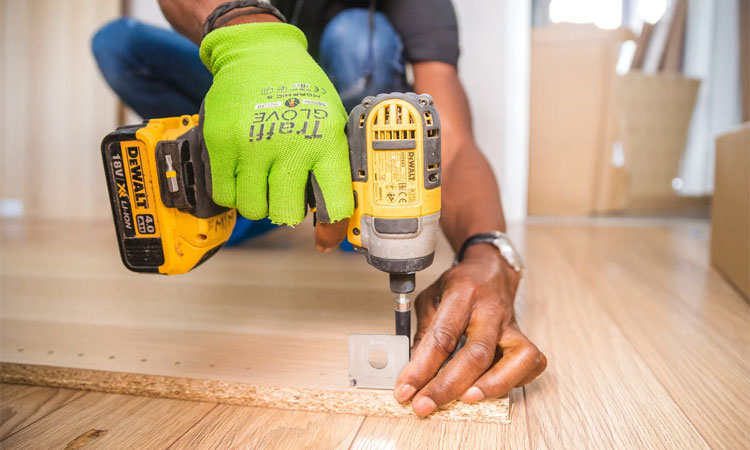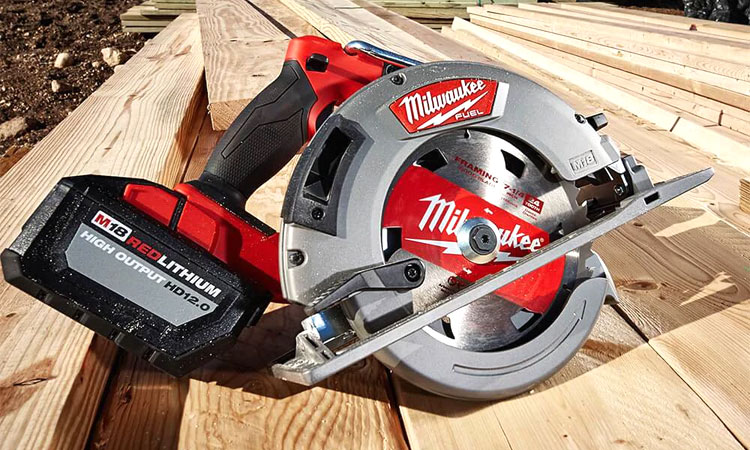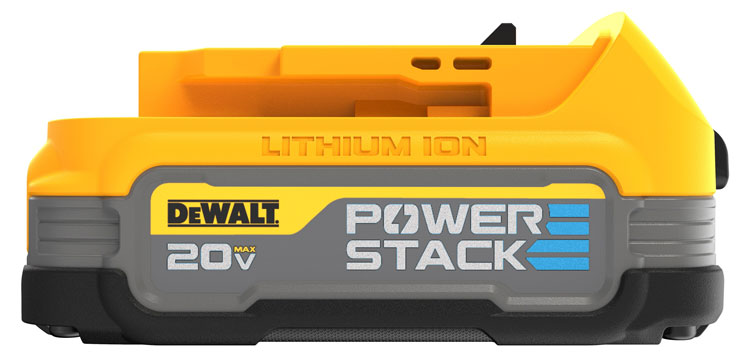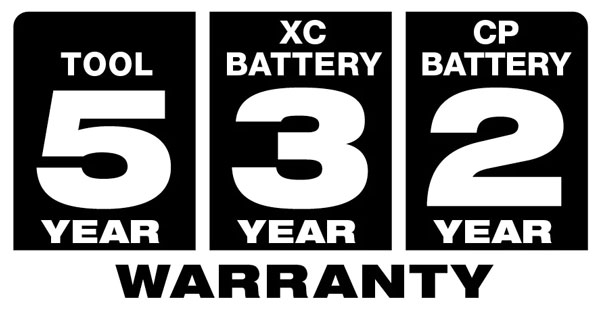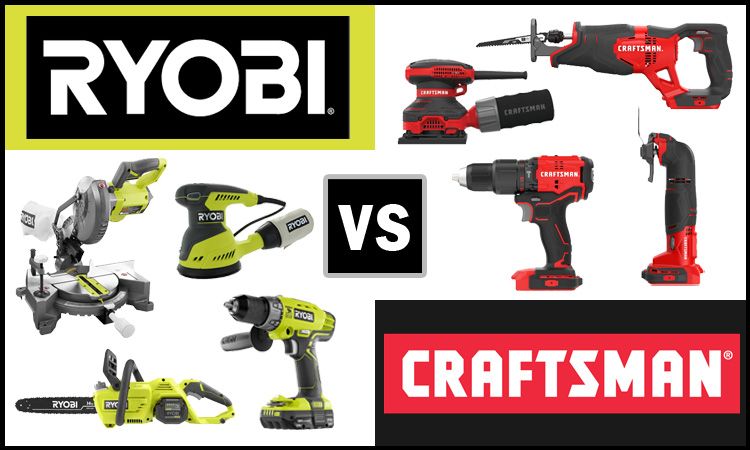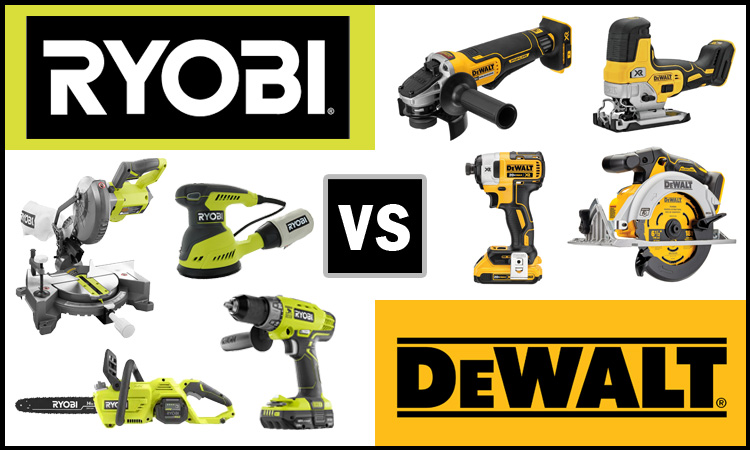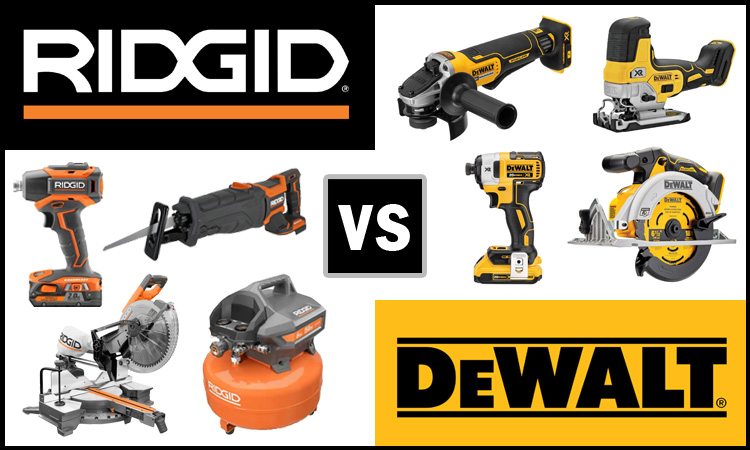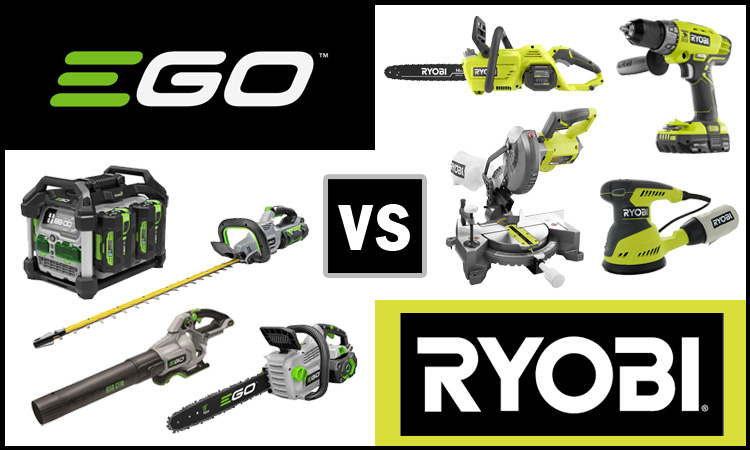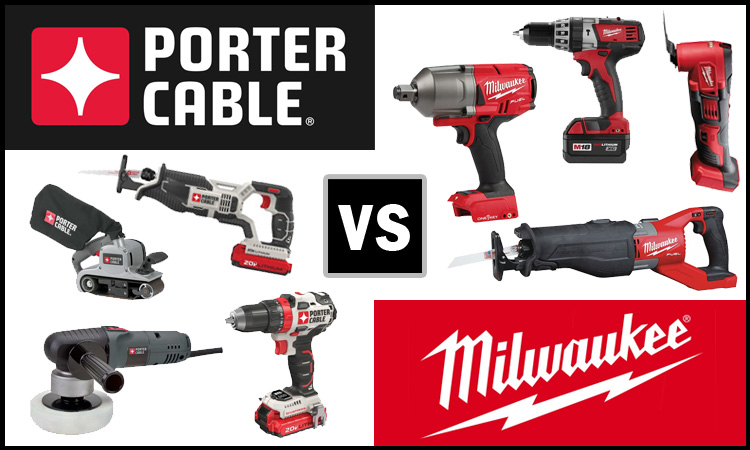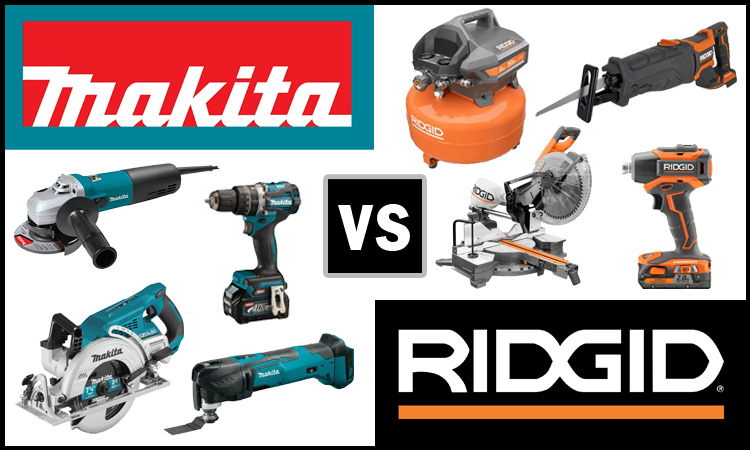DeWalt vs Milwaukee (Which is Better?)
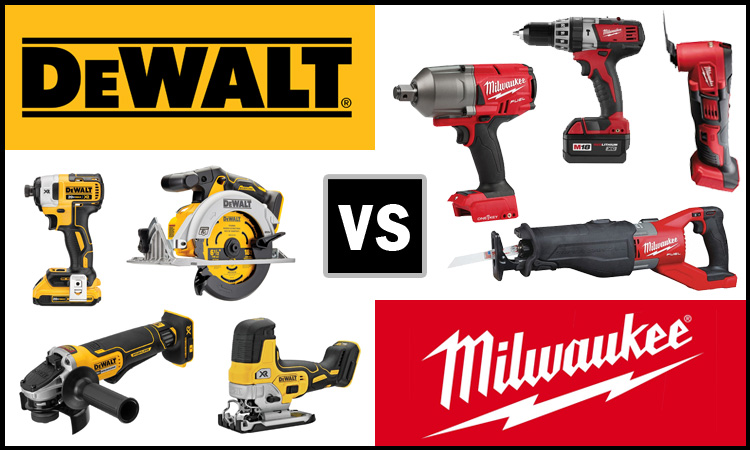
In the world of power tools, several names stand out above the crowd, due to their long-standing presence within the industry. Of these names, few are as renowned as DeWalt and Milwaukee.
Both of these manufacturers have been producing high-quality power tools for a number of years, and are well respected by consumers.
However, this brings to mind quite an interesting quandary. Of these two prestigious brands, which is better? While there is certainly room to argue on behalf of both DeWalt and Milwaukee, only one actual winner can be crowned.
The following is a side-by-side comparison of DeWalt and Milwaukee power tools, based upon specs, features, and verifiable test data.
See Also: Ryobi vs Ridgid
History
The history of both DeWalt and Milwaukee dates back approximately 100-years, to a time in which the power tool industry was still in its infancy. Each of these manufacturers also weathered its share of adversity, in a bid to carve out their own distinct legacy.
The following is a brief summary of DeWalt and Milwaukee’s rise to prominence.
About DeWalt Tools
DeWalt tools was founded by Raymond DeWalt, the Superintendent of Seabrooks Farms, in 1922. Initially, Mr. DeWalt’s business was founded upon the production of a revolutionary woodworking machine, which was renowned for its high degree of versatility.
The company then established its first manufacturing plant in Leola, Pennsylvania. Additionally, DeWalt began offering a dedicated mortiser and jointer, thereby expanding its product catalog beyond the company’s initial “Wonder Worker” universal woodworking machine.
During the 1940s, DeWalt expanded quite rapidly, due in large part to a number of wartime production contracts that they had secured. By the end of the decade, DeWalt had been acquired by American Machine Foundry, as expansion continued. The company would continue to broaden its product catalog over the decades to come.
Then, in 1992, DeWalt launched its own line of portable power tools and accessories. By 2001, this line had expanded to encompass over 200 tools in total. These cordless power tools were offered in 12V, 14.4V, 18V, and 20V varieties.
Today, DeWalt is owned by Black & Decker, and employs approximately 13,000 workers, across the US, as well as in foreign countries. The company continues to expand upon its already enormous inventory of traditional and cordless power tools.
See Also: DeWalt vs Makita (Which is Better?)
About Milwaukee Tools
The history of Milwaukee tools is quite interesting. Toward the conclusion of WWI, automotive luminary Henry Ford approached tooling manufacturer A.H. Petersen with a specialty request. Ford proposed that Peterson develop a lightweight, portable ¼” drill. Peterson did as requested, eventually producing the “Hole Shooter”, a 5-pound drill, with a durable Westinghouse motor.
Peterson later partnered with A.F. Siebert, to establish the A.H. Petersen Company. Unfortunately, this fledgling company was crippled by an early plant fire, which ultimately brought about financial ruin. However, in 1924, Siebert would go on to purchase the business’ remaining assets, officially forming the Milwaukee Electric Tool Corporation.
During WWII, Milwuakee’s Hole Shooter was used extensively by American armed forces, in the production of military aircraft, thereby bolstering the company’s image. Then, in 1951, Milwaukee introduced their revolutionary Sawzall, reciprocating saw. Another key Milwaukee development of the era was the ½” right-angle drill.
In the 1970s, Milwaukee was acquired by Amstar, thereby leading to subsequent manufacturing expansion. A number of new products and warehouses began to spring up throughout the southeast United States during the 1970s, 80s, and 90s.
Today, Milwaukee Tool Company is owned by Techtronic Industries Company and employs approximately 1,000 workers worldwide. The company remains best known for its production of industry leading portable power tools.
See Also: Milwaukee vs Makita (Brand Comparison)
Manufacturing
Many consumers consider a tool’s country of origin when contemplating a prospective purchase. Therefore, it is worth considering such details, when comparing DeWalt and Milwaukee tools in a side-by-side fashion.
Where Are DeWalt Tools Made?
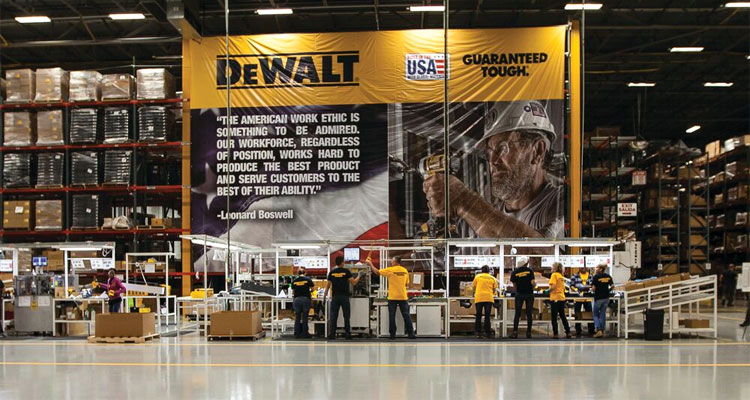
DeWalt Tools is headquartered in Towson, Maryland, and operates a total of 7 manufacturing facilities in the United States. These facilities are located in the following United States cities.
- New Britain, Connecticut
- Hampstead, Maryland
- Shelbyville, Kentucky
- Greenfield, Indiana
- Cheraw, South Carolina
- Charlotte, North Carolina
- Jackson, Tennessee
However, it is worth noting that not all DeWalt tools are produced solely in the United States. On the contrary, DeWalt also owns manufacturing facilities in China, Brazil, Mexico, Italy, the Czech Republic, and the UK.
In the majority of cases, DeWalt tools manufactured in the US will feature the company’s “Built in the USA with Global Materials” label.
Where Are Milwaukee Tools Made?
Milwaukee Tools is headquartered in Brookfield, Wisconsin. Much like DeWalt, Milwaukee manufactures tools both domestically and internationally. The bulk of Milwaukee’s US manufacturing and warehousing efforts take place in the following cities.
- Olive Branch, Mississippi
- Jackson, Mississippi
- Greenwood, Mississippi
- Mukwonago, Wisconsin
Outside of their domestic operations, Milwaukee also produces a number of their portable, battery-powered tools overseas. These foreign production facilities exist most prominently in China and Europe, though it is possible that additional facilities exist elsewhere.
Read Also: Milwaukee vs Ryobi
Product Line
DeWalt and Milwaukee are both renowned for their extensive product lines, catering to a wide sector of the DIY, contracting, and automotive industries. The diversity of each manufacturer’s product line continues to motivate buyers, and drive sales year-after-year.
The following are several highlights from each brand’s current product catalog.
DeWalt
DeWalt’s dominance within the power tool market began to materialize in the early 1990s, with the release of the company’s first set of cordless tools. DeWalt further expanded upon this early success with the release of 30 additional cordless power tools in 1994. This most notably included DeWalt’s first 14.4V offerings.
Today, the 20V Max line serves as DeWalt’s most prominent series of power tools. To date, there are nearly 200 power tools available within this series, with more being released on an annual basis. Some of the most notable offerings within the 20V Max series include portable drills, reciprocating saws, impact wrenches, and grinders.
Additionally, DeWalt now offers a complete set of 60V Max power tools for the dedicated tradesman. These tools provide extra power, beyond that offered by the manufacturer’s standard 20V offerings. Tools within this series include nail guns, circular saws, air compressors, and rotary hammers.
Outside of the company’s standard power tool offerings, DeWalt also manufactures a complete line of durable hand tools. Beginning in 2013, DeWalt also began marketing their own heavy-duty line of specialty mechanic’s tools, designed to satisfy the needs of industry professionals.
Read Also: DeWalt vs Ridgid (Brand Comparison)
Milwaukee
Milwaukee offers an unsurpassed number of portable power tools, designed for both at-home and professional use. These tools span the gamut, serving the hobbyist, home-improvement, and automotive sectors. Milwaukee’s portable power tools also come in several different power settings, allowing for next-level versatility.
Of these power tools, few are as popular as those found within Milwaukee’s M12 lineup. Tools within this series are designed to be remarkably compact and lightweight, making them ideal for at-home or hobbyist work. However, many professional tradesmen also utilize tools within the M12 series.
To satisfy the needs of those in search of a little additional power, Milwaukee offers their ultra-popular M18 line of portable power tools. Currently, this lineup features more than 200 power tools, ranging from impact guns to circular saws. Other popular M18-series tools include nailers, industrial electrical crimpers, and work lights.
In 2010, Milwaukee also began manufacturing and marketing their own signature line of hand tools, designed for the discerning professional. Some of the most notable of these hand tools include wrenches, screwdrivers, pliers, and strippers/crimpers. Milwaukee also offers its own line of utility knives, as well as a multitude of heavy-duty drill bits.
Other Comparison: Milwaukee vs Ridgid
Technology
Throughout the years, both DeWalt and Milwaukee have been at the forefront of technical development within the power tool industry. The following are several of the most significant of these developments, as well as the benefits that each provides.
DeWalt
FlexVolt Batteries
DeWalt made significant waves with the release of their FlexVolt series of batteries. These batteries are universal in nature, proving adequate for use with both 20V and 60V DeWalt portable power tools.
As such, these batteries are among the most versatile on the market, as they allow consumers to pack a single type of battery for any application.
Tool Connect
Many DeWalt portable power tools are now compatible with the company’s proprietary Tool Connect app. This app allows users to track the location, status, and battery condition of each of their tools, all from the palm of their hand.
This feature often serves as a great theft deterrent on the jobsite.
See Also: DeWalt vs Kobalt
Milwaukee
REDLITHIUM Batteries
Milwaukee’s REDLITHIUM line of batteries are designed to work harder and last longer than any other portable power tool battery on the market.
Each battery within this series is advertised to provide 50-percent greater power than similarly rated batteries, yet run exponentially cooler.
One Key App
Similar to DeWalt’s Tool Connect app, Milwaukee now offers their own tool management software program, known simply as One Key.
This program allows users to track the location and status of every portable Milwaukee power tool that they own, while also navigating through a wealth of custom inventory options.
Warranty and Service
A company is only as good as its dedication toward quality customer service. Therefore, it is only natural for consumers to carefully study a particular manufacturer’s warranty policies, when contemplating any purchase.
The following is a side-by-side comparison of DeWalt and Milwaukee’s warranty policies.
DeWalt
DeWalt backs the vast majority of their portable power tools with a 3-year limited lifetime warranty. This warranty protects against defects in materials and workmanship for the extent of its duration. On the contrary, this policy does not cover issues that arise out of standard wear and tear,
Outside of the company’s standard 3-year warranty, DeWalt also offers a One-Year Free Service Contract. This contract stipulates that DeWalt will repair any defects to their tools that arise out of standard wear and tear, within the first 12-months of service. Any such repairs will be made without cost to consumers.
Additionally, all DeWalt power tools are complemented by a 90-day satisfaction guarantee. If for any reason you are not completely satisfied with the purchase of any DeWalt power tool, return it within 90-day for a full refund, no questions asked.
Milwaukee
The vast majority of Milwaukee portable power tools come backed by a 5-year limited lifetime warranty. This policy stipulates that Milwaukee power tools will be free of defects in materials and workmanship, for 5-years since the date of purchase.
It is worth mentioning, however, that this warranty policy does not protect against defects arising out of standard wear and tear. Any attempted tool alteration or repair by unlicensed individuals will also void this warranty, thereby negating any additional coverage.
There are a certain number of Milwaukee power tools that are not covered by the warranty policy outlined above. In such instances, the tool in question will come backed by an individual warranty policy, as specified by Milwaukee. Some of the most prominent power tools to fall outside of Milwaukee’s standard warranty policy include the M18 Compact Heat Gun, and the M18 FUEL Dual Action Random Orbital Polisher.
Dewalt vs Milwaukee: And The Winner Is…
In truth, it is quite impossible for consumers to go wrong with the purchase of one or more tools from either of these two titans of the tool industry. DeWalt and Milwaukee are both heralded as top-notch manufacturers, by DIY enthusiasts and professional tradesmen alike. However, for the sake of argument, we can only choose a single winner between these two brands.
When comparing apples to apples, DeWalt takes top honors in our side-by-side comparison. The famed manufacturer offers an unparalleled number of power tools, virtually all of which are now compatible, thanks to the release of DeWalt’s innovative FlexVolt batteries.
Likewise, DeWalt tools also provide consumers with great value. These tools, though of a premium design, are often offered at a modest price point. This allows users to get the absolute best bang for their buck. While there is certainly much to applaud, regarding Milwaukee’s various tool offerings, we still feel that DeWalt reigns supreme.


